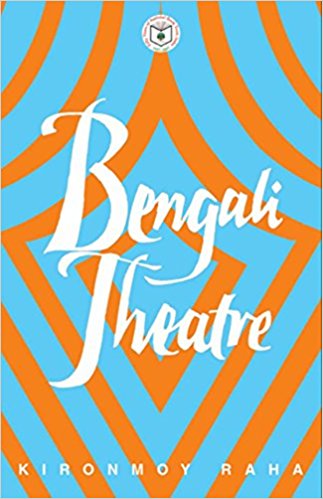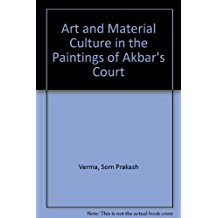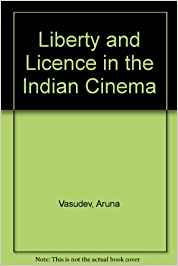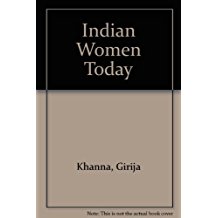In his preface K.S. Duggal feels that the short story is a product of the twentieth century. It was born during the first World War, and ‘the subsequent period of distrust and dislocation of accepted norms of daily life fostered it.’ Rather a negative way of looking at it—surely there were other…
Archives
Nov-Dec 1978 . VOLUME 3, NUMBER 31978
To the tell-me-a-story request from her grandchild, grandmother Rama Rau responded with tales of her own childhood and little Asha listened with wonder—’… from her expression I might have been describing a totally foreign land in a remote period of history’. From the girl’s insistence that her…
This is a source-book for those who wish to obtain specialized information regarding the material culture of Akbar’s times. It is not a book that one expects to complete at one reading, but is more in the nature of a reference book, aiding such of us as would wish to verify whether, for example, a kettle-drum of a particular type was known in Akbar’s days or if flutes of a specific variety were then in vogue…
Till the late sixties students of Indian elections and party system used to complain of the dearth of relevant and reliable data needed for undertaking systematic empirical studies in these two areas. The position has changed since then substantially, thanks largely to the efforts of some scholars to develop…
With the increasing realization of the role of Multinational corporation as the coupling mechanism in the structural linkage between the ‘centre’ of the Imperialist system with its ‘periphery’ the literature on the working of Multinationals in the Developing world continues to grow. By now, in purely quantitative terms…
In 1921 when Professor Vakil headed the Bombay School of Economics and Sociology most of the present generation of Indian economists (even senior ones) were unborn. Like John Matthai he was one of the earliest Indian products of the London School of Economics in its formative years…
It has been our firm belief for long, now reinforced by the present example that the festschrift volumes should be a tribute to the dead, or, at the most, presented in honour of those who have retired or about to retire from public life. A festschrift volume is perhaps too early for Professor Kaula…
1978
Iqbal A. Ansari’s book Uses of English, for the conservative, carries an explanatory sub-title ‘Varieties of English and Their Uses’. Conscious of some eyebrows being raised on the plural ‘Uses’ and afraid that the sub-title may not register, the author begins his preface with the following explication: ‘This book…
As the introduction to the Writers’ Workshop translation of Nagarjun’s novel Jamaniya ka Daba puts it, the author is one of the stalwarts of the Progressive movement in Indian literature, a movement committed to Marxism and to the depiction of social realism, Nagarjun usually handles social situations familiar in India…
1978
The theatre in Bengal in its early days came to be labelled by some newspapers as the Bilati Jatra, i.e., indigenous folk play presented in a western pattern. Curious as it may sound, the expression rightly stressed the kind of interrelationship…
‘But life itself is poetry; it is the most living poetry, and with us there are no clear limits between life and poetry.’ So says To Huu, the poet of modern Vietnam, in one of the interviews with which this slender volume of selections from his poetry are interspersed—interviews in which he speaks about his life…
This book by Lee Siegel has been sponsored by the Inter-Faculty Committee for South-Asian Studies, University of Oxford. On the first page is a verse which ends with the lines: ‘Sacred is this state of human fulfilment, which we find if ever.’ The Gitagovinda does not deal with the aspect of practical-cum-material fulfilment…
This is a source-book for those who wish to obtain specialized information regarding the material culture of Akbar’s times. It is not a book that one expects to complete at one reading, but is more in the nature of a reference book, aiding such of us as would wish to verify whether, for example, a kettle-drum of a particular type was known in Akbar’s days or if flutes of a specific variety were then in vogue…
In the field of film writing, in India more verbiage has been devoted to discussing film censorship than perhaps any other topic except for the private lives of film stars. Acts, reports and other connected official documents have been briefly discussed, filed, put, and sometimes not put, before the public, thereafter, reactions…
This book is the report of an International Seminar held at the Institute of Development Studies, Sussex in 1977, of Academics and Practical Administrators to seek ‘practical solutions’ to the problems of rural women. The book is divided into three parts: the first part covers three task force reports…
Man’s cruelty to man is unbelievable. But believe one has to, when details come out one after another, of what people undergo in our prisons, where they are supposed to be reformed. After spending ages in prison, they come out· hardened, their hearts darkened more than ever with evil…







